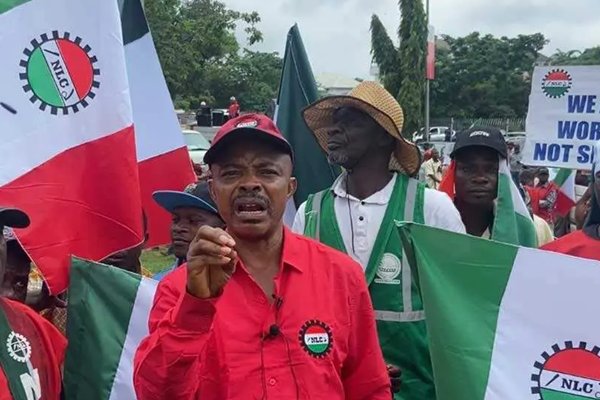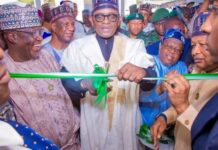Cost of Living: Labour to renegotiate ₦70,000 minimum wage
Despite the implementation of the national minimum wage across the 36 states and the Federal Capital Territory (FCT), stakeholders and labour unions have raised concerns about the cost of living in the country, insisting that many workers will be unable to feed their families.
This comes as states set the average floor wage at ₦73,471.43, according to national analysed data. The mean of states’ minimum wage is ₦3,471.43 or five per cent higher than the legislated wage peg.
Akwa Ibom, Bayelsa, Delta, Enugu, Lagos, Niger, Oyo and Rivers pay much higher than both the Federal Government’s peg (₦70,000) and the national average.
Less than a year into the rigorously negotiated new wage law, the new salary structure has lost much of its real value, triggering a fresh agitation from stakeholders.
With inflation already eating up a large chunk of the addition to the old wages, agitations seem to have commenced ahead of the 2027 renegotiation times.
The labour leaders are already setting an agenda for the deliberation, saying that the government only gave with one hand and took with another when it adjusted wages last year.
At about 24 per cent headline inflation, nominal incomes have lost over one-fourth of their value. Simply, the average minimum wage of state governments is ₦55,000 in real terms compared to a year ago when the minimum wage was meant to take effect.
It also means that workers across different salary structures have had 25 per cent of their income completely eroded by strained purchasing power.
With states paying between ₦70,000 and ₦85,000, rising costs of telecommunications services, transportation, food items, electricity bills, school fees, house rents, as well as premium motor spirit (PMS) would continue to make most workers feed from hand to mouth, stakeholders said.
With the average daily cost of a healthy diet in the country at ₦1,255 per adult as of August 2024, according to the National Bureau of Statistics (NBS), a worker earning ₦70,000 a month would have spent ₦37,650 on a daily meal for an adult in a month. The amount is already 53.79 per cent of the entire salary.
While all the state governments are also negotiating with the labour state councils on the modalities of minimum wage implementation, Enugu state has yet to begin negotiation, according to information obtained from labour organisations.
However, the state has commenced a provisional payment of ₦80,000 minimum wage to its workers.
The implementation update report exclusively obtained by The Guardian at the weekend also showed that the implementation dates also differ from state to state.
As of July 29, 2024, when President Bola Tinubu signed the 2024 national minimum wage bill into law, the inflation rate stood at 33.4 per cent, sliding from 34.19 per cent in June 2024. While the inflation rate decelerated to 24.48 per cent in January 2025 and further came down to 23.18 per cent in February 2025, prices of basic food items and household needs remain stubbornly high.
According to the progress report, Abia, Adamawa, Anambra, and Bauchi states are paying ₦70,000 as negotiated with the state labour councils, and the implementation has since commenced.
Akwa Ibom and Bayelsa are paying ₦80,000 as negotiated with their state labour councils, which took effect from 1st November 2024, about five months after the law was signed.
However, the National Minimum Wage Act does not apply to part-time workers, workers paid on commission or piece rate, establishments employing less than 25 persons, workers in seasonal employment, like agriculture and any person employed in a vessel or aircraft.
While one key achievement of the 2024 national minimum wage is the reduction of the negotiation cycle which means both the Nigeria Labour Congress and its Trade Union Congress (TUC) can begin to gear up for another round of negotiation next year (2026), there are concerns that the expected gains of the present minimum wage have been eroded by inflation.
The General Secretary of the Non-Academic Staff Union and Associated Institutions (NASU), Peters Adeyemi, who lauded the reduction in the negotiation cycle, said labour now has headroom to negotiate based on reigning realities.
He argued: “I have always argued that the five-year period was too long in a volatile economy. Prices of goods and services go up almost daily, which renders the take-home pay of workers inadequate. Devaluation, price of PMS and inflation are the real enemies of the working class in Nigeria because these are what consume a large chunk of their salaries. With a year renegotiation period, hopefully, the figure that will be arrived at will be pocket-friendly.”
Even with the raise in the minimum wage to ₦70,000, President of the NLC, Joe Ajaero, maintained that the weak value of the naira, increase in electricity tariffs and total deregulation of the downstream sector of the oil industry have added a multi-layer economic burden that renders the new wage inadequate.
He accused the government of reneging on its promise not to increase the pump price of petrol, which was the pre-condition for accepting ₦70,000 from about the ₦250,000 the organised labour movement insisted on during the negotiation.
However, he believes that agreeing to a three-year negotiation cycle, which will be due in 2027, presents the movement as unique to further push for a wage that will be closer to the reigning economic reality.
The National Coordinator of the Human Rights Writers Association of Nigeria (HURIWA), Emmanuel Onwubiko, said no governor deserves commendation for implementing the new wage.
He argued that a wage that is below $50 for 30 days is one of the lowest in the world.
The minimum wage is too low at ₦70,000. In these states, no one knows the number of workers they have. How can we then arrive at how much they are paying from what they get? We simply take whatever they tell us. The argument that the compliance level is high is not tenable to me.”
Onwubiko added that for a currency that has lost more than 100 per cent of its value in the last year, ₦70,000 is not enough to sustain a family of three for one month, saying: “The cost of living has skyrocketed by at least five folds in the last one year. What the former minimum wage of ₦30,000 could buy, N70,000 of today cannot buy it.”
He urged the tripartite bodies to gear up for another round of negotiations before the 2027 date.
On what the state governments can do to generate resources for the betterment of the populace, Onwubiko said going into a business venture is not a good idea.
He explained that the success the Akwa Ibom state government has recorded in the aviation sector is an exception that would be difficult for any state.
He cautioned the Enugu state government against exploring the possibility of going into the venture, while he also has the same words of caution for the Kogi state, which has procured a license to go into mining.
His words: “How many state governments have recorded success in the aviation sector? Don’t we remember the experience of the Cross Rivers state government? I think that the Enugu state government should focus on building the infrastructure it is doing right now. As for the Kogi state, the state should create an enabling environment for the private sector to thrive. The state government should ensure there is adequate security and infrastructure that can sustain a booming private sector.”
An investment banker, Tolulope Alayande, lauded labour for ensuring that the renegotiation cycle was reduced from five to three years.
He submitted that the step will allow the labour movement to ensure that the future minimum wage aligns with inflationary trends.
He said: “Yes, it is true that ₦70,000 is grossly inadequate, but it is a step in the right direction looking at the resources available to the Federal Government. The removal of the petrol subsidy was inevitable and the only option available at the time. I think the economy was greatly mismanaged under the previous government.
The level of borrowing was too high, and the subsidy regime was unsustainable. It was a period when Nigerians were lied to and deceived into believing they could live a life larger than life. Now, we are bearing the brunt. This is our reality, and we have to confront it.”
Follow the Neptune Prime channel on WhatsApp:
Do you have breaking news, interview request, opinion, suggestion, or want your event covered? Email us at neptuneprime2233@gmail.com





